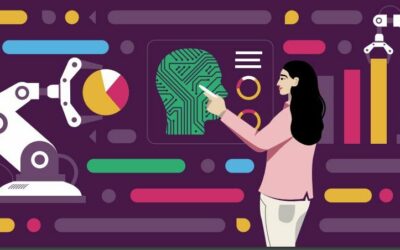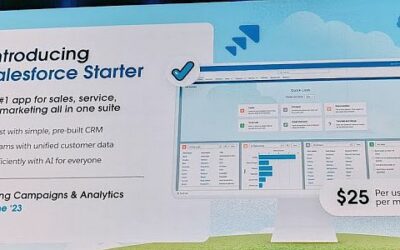INDIA , New Delhi — Oct 27, 2021 – People are turning to robots to support their career development after the COVID-19 pandemic left them feeling lonely and disconnected from their own lives, according to a new study by Oracle and Workplace Intelligence, an HR research and advisory firm. The study of more than 14,600 employees, managers, HR leaders, and C-level executives across 13 countries found that people all around the world have felt stuck in their personal and professional lives but are ready to regain control of their futures.
The global workforce feels lonely, disconnected, and out of control
More than a year in lockdown and the continued uncertainty due to the pandemic has left many workers in emotional turmoil, feeling like their lives and careers are out of control. Workers worldwide have been negatively impacted over the past year, with people in India and the UAE struggling the most, but also being the most open to technology support.
- 80 percent of people have been negatively impacted by the last year, with many struggling financially (29 percent); suffering from declining mental health (28 percent); lacking career motivation (25 percent); and feeling disconnected from their own lives (23 percent). The percentage of Indians under this parameter of negatively impacted people is (91%) with many (44%) struggling financially, (36%) are suffering from declining mental health, (32%) are lacking career motivation and (31%) are feeling disconnected from their own lives.
- 62 percent found 2021 to be the most stressful year at work ever. More than half (52 percent) of people struggled with mental health at work more in 2021 than in 2020. (68%) of respondents from India struggled with mental health at work more in 2021 than in 2020.
- The amount of people worldwide who feel little to no control over their personal and professional lives doubled since the start of the pandemic. Globally, people noted they have lost control over their futures (43 percent); personal lives (46 percent); careers (41 percent); and relationships (39 percent) whereas in India (67%) of people noted that they have lost control over their personal lives, careers (60%) and relationships (55%)
- 76 percent of people feel stuck in their personal lives, feeling anxiety about their future (31 percent); trapped in the same routine (27 percent); and more loneliness than ever before (26 percent). Here, (87%) of respondents from Indian feel stuck in their personal lives over the past year, (40%) are feeling anxiety about their future, (30%) are trapped in the same routine and (28%) are more loneliness than ever before.
“The pandemic has become an inflection point that has accelerated the adoption of digital technologies across sectors and bids to transform the Indian landscape into a digitally empowered society and a knowledge economy. Whereas remote working and the continual pressure to win the race has exacerbated anxiety and loneliness, putting employees’ mental health at risk” said, Deepa Param Singhal, Vice President, HCM, Oracle Asia Pacific.
“Given the reopening of sectors and offices, it is important for CHROs, corporate executives, and decision makers to adapt to the present circumstances. In addition, to traverse the new world of work, which has lately been turned upside down, AI integration is essential. Organizations must adapt to changing economic conditions and recognize the untapped potential of sophisticated technology. Not only will this increase employee productivity, but it will also give a boost to the country’s economic condition,” she added.
Also see:
IBM Collaborates with 30 Organizations to Skill 500,000 People by end ’21
People are motivated to make changes, but are facing big challenges
Despite struggles over the last year, people around the world are eager to make changes in their professional lives.
- 93 percent of people used the past year to reflect on their lives and 88 percent said the meaning of success has changed for them since the pandemic, with work-life balance (42 percent); mental health (37 percent); and workplace flexibility (33 percent) now top priorities. Majority of Indians (96%) said the meaning of “success” has changed for them since the pandemic and explained that success is now more aligned, more than half (52%) are achieving work-life balance, (44%) are prioritizing mental health, (49%) are having flexibility over when and where they work and (44%) say they are having a meaningful job contributes more to their success than a steady paycheck.
- 75 percent feel stuck professionally, because they don’t have growth opportunities to progress their career (25 percent) and are too overwhelmed to make any changes (22 percent). In India, (30%) of people felt like they didn’t have the growth opportunities to progress their career, (33%) were too overwhelmed to make any changes, (63%) are worried that the rise of robots and technology will make their skills redundant in the future and nearly (37%) felt like their skills went stale due to changing work environments over the past year.
- 70 percent of people say feeling stuck in their career has negatively impacted their personal lives as well by adding extra stress and anxiety (40 percent); contributing to feeling stuck personally (29 percent); and taking focus away from their personal lives (27 percent). (83%) of Indian workforce says they are feeling stuck in their career, and it has negatively impacted their personal lives as well by adding extra stress and anxiety (50%), contributing to feeling stuck personally (41%) and taking focus away from their personal lives (41%).
- 83 percent of people are ready to make a change, but 76 percent said they are facing major obstacles. The biggest hurdles include financial instability (22 percent); not knowing what career change makes sense for them (20 percent); not feeling confident enough to make a change (20 percent); and seeing no growth opportunities at their company (20 percent). (97%) of workforce wants to make career changes in India over the next year but (85%) are facing major obstacles in their path forward. (38%) are struggling financially, (27%) don’t know what career change makes sense for them, (22%) are not confident enough to make a change and (29%) see no growth opportunities within their company.
- Going into 2022, professional development is top of mind with many willing to give up key benefits such as vacation time (52 percent); monetary bonuses (51 percent); and even part of their salary (43 percent) for more career opportunities. Here (80%) of professionals (respondents from India) are saying they’d give up vacation time, (77%) are willing to forego a monetary bonus and (76%) are even willing to give up part of their salaries.
- However, 85 percent of the global workforce are not satisfied with their employer’s support. They are looking for organizations to provide more learning and skills development (34 percent); higher salaries (31 percent); and opportunities for new roles within their company (30 percent). (96%) of workforce in India are not satisfied with their employer’s support, (49%) are looking for organizations to provide –Learning and skill development opportunities, (37%) are for more money, (47%) opportunities to take on new roles within the company, (48%) want more flexibility and (41%) need technology to help navigate their careers.
“The past year and a half changed how we work including where we work and, for a lot of people, who we work for. While there have been a lot of challenges for both employees and employers, this has been an opportunity to change the workplace for the better,” said Dan Schawbel, managing partner, Workplace Intelligence. “The results clearly show that investment in skills and career development is now a key differentiator for employers as it plays a significant role in employees feeling like they have control over their personal and professional lives. Businesses that invest in their employees and help them find opportunities will reap the benefits of a productive, engaged workforce.”
Employees around the world are hungry for new skills and turning to technology for help
To retain and grow top talent amidst changing workplace dynamics, employers need to pay attention to employee needs more than ever before and leverage technology to provide better support.
- 85 percent of people want technology to help define their future by identifying skills they need to develop (36 percent); recommending ways to learn new skills (36 percent); and providing next steps to progress towards career goals (32 percent). In India, 97% of people want technology to help them define their future; (49%) by identifying the skills they need to develop, (52%) are recommending ways to learn new skills and (49%) are providing next steps to progress towards career goals. 75 percent of people (globally) and (91%) in India would make life changes based on robot recommendations.
- 82 percent believe robots can support their careers better than a human by giving unbiased recommendations (37 percent); quickly answering questions about their career (33 percent); or finding new jobs that fit their current skills (32 percent). In this parameter, (92%) of Indian respondents believe that robots can support their career development better than humans, (44%) believe that robots are better at giving unbiased recommendations, (46%) are delivering resources tailored to current skills or goals, (50%) are quickly answering questions about their career and (44%) are finding new jobs that fit their current skills.
- People believe humans still have a critical role to play in career development and believe humans are better at providing support by offering advice based on personal experience (46 percent); identifying strengths and weaknesses (44 percent); and looking beyond a resume to recommend roles that fit personalities (41 percent). (50%) of respondents from India fell that human are better at offering advice based on personal experience, (54%) are identifying strengths and weaknesses, (50%) are looking beyond a resume to recommend roles that fit their personality and (48%) are providing personal recommendations for new jobs or roles. Globally, 87 percent and (94%) in India believe their company should be doing more to listen to their needs. 55 percent (globally) and (81%) in India are more likely to stay with a company that uses advanced technologies like AI to support career growth.
Learn more about this global report here: https://www.oracle.com/human-capital-management/ai-at-work/
Methodology
Research findings are based on a survey conducted by Savanta, Inc. across the US, the UK, the UAE, France, the Netherlands, Germany, Brazil, India, Japan, South Korea, Singapore and Australia between July 27 – August 17, 2021. For this survey, 14,639 C-suite executives, HR leaders, managers and full-time employees were asked general questions about the impact of COVID-19 on the workplace, AI and career development, and AI adoption at the workplace. The study targeted full-time employees who are 22 to 74 years of age. Respondents were recruited through a number of different mechanisms, via different sources to join the panels and participate in market research surveys. All panelists have passed a double opt-in process and complete on average 300 profiling data points prior to taking part in surveys. Respondents are invited to take part via email and are provided with a small monetary incentive for doing so. Results of any sample are subject to sampling variation. The magnitude of the variation is measurable and is affected by the number of interviews and the level of the percentages expressing the results. In this particular study, the chances are 95 in 100 that a survey result does not vary, plus or minus, by more than 0.8 percentage points from the result that would be obtained if interviews had been conducted with all persons in the universe represented by the sample.
Workplace Intelligence, LLC is an HR research and advisory firm helping leaders adapt to trends, drive performance, and prepare for the future. Our mission is to create more intelligent workplaces using data-based insights. For more information please visit workplaceintelligence.com and read the Workplace Intelligence Insider Newsletter.









